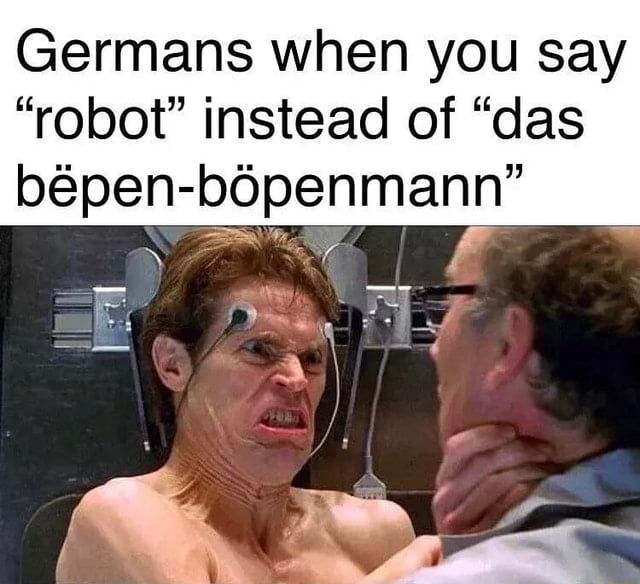this post was submitted on 23 Apr 2024
558 points (97.9% liked)
196
16790 readers
2833 users here now
Be sure to follow the rule before you head out.
Rule: You must post before you leave.
founded 2 years ago
MODERATORS
you are viewing a single comment's thread
view the rest of the comments
view the rest of the comments

excuse me but its “Das Transgenderhaifischplüschtier“
Incredible they have a word for that. They really think of everything.
The German language is like legos. You can just slap words together to make new ones.
Like glove. It's Handschuh in German, which id hand-shoe. The language is full of words like this.
Such a shame that the German for shoe isn't foot-glove.
To prevent recursion obviously. It's like you have never languaged in your life.
It's just shrimple compound words and maybe agglutination. You can form words decently synthetically (although not very agglutinatively) in English to an extent too – in fact, English loves affixes quite a lot despite generally being more analytic than synthetic. For example, I now will demonstrate bipreindefenestratability. A word you might actually be able to find in dictionaries is "propreantepenultimate". Then there's words like "goodbye", formed from "God be with ye".
Another similar concept that doesn't go as far as agglutination is compound words, which English also likes (often times they may have a hyphen or space between them in writing though, rather than just being glued together).
Germanic languages (including Old English and Old Norse) used to all have extensive compound word formation, but it has slowly became less and less pronounced of a grammatical feature over time in most languages. Another comment mentions German "Handschuh" ("Hand" + "Schuh", handshoe), there's also Dutch "handschoen" and Luxembourgish "Händsch"; well Old English had "handscōh" ("hand" + "sċōh", handshoe). Plus Modern English words like "handkerchief" (hand + kerchief/coverchef).